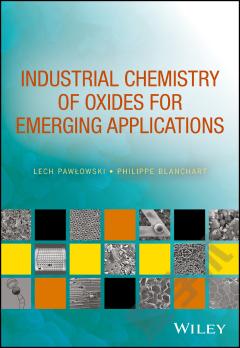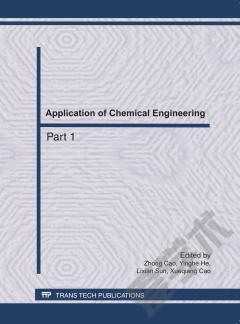Industrial Chemistry of Oxides for Emerging Applications
Valuable insights into the extraction, production, and properties of a large number of natural and synthetic oxides utilized in applications worldwide from ceramics, electronic components, and coatings This handbook describes each of the major oxides chronologically—starting from the processes of extraction of ores containing oxides, their purification and transformations into pure alloyed powders, and their appropriate characterization up to the processes of formation of 2D films by such methods as PVD, CVD, and coatings by thermal spraying or complicated 3D objects by sintering and rapid prototyping. The selection of oxides has been guided by the current context of industrial applications. An important point that is considered in the book concerns the strategic aspects of oxides. Some oxides (e.g. rare earth ones) become more expensive due to the growing demand for them, others, because of the strategic importance of countries producing raw materials and the countries that are using them. Industrial Chemistry of Oxides for Emerging Applications provides readers with everything they need to know in 7 chapters that cover: technical and economical importance of oxides in present and future; fundamentals of oxides manufacturing; extraction, properties, and applications of Al2O3; extraction, properties, and applications of ZrO2; synthesis, properties, and applications of YBaCu2O7x; extraction, properties, and applications of TiO2; and synthesis, properties, and application of hydroxyapatite. Presents the extraction, production, and properties of a large fraction of oxides applications worldwide, both natural as well as synthetic multi‐oxides Covers a very important segment of many industrial processes, such as refractories and piezoelectric oxides—both applications constituting very large market segments Developed from a lecture course given by the authors for over a decade Industrial Chemistry of Oxides for Emerging Applications is an excellent text for university professors and teachers, and graduate and postgraduate students with a solid background in physics and chemistry.
{{comment.content}}








 京公网安备 11010802027623号
京公网安备 11010802027623号